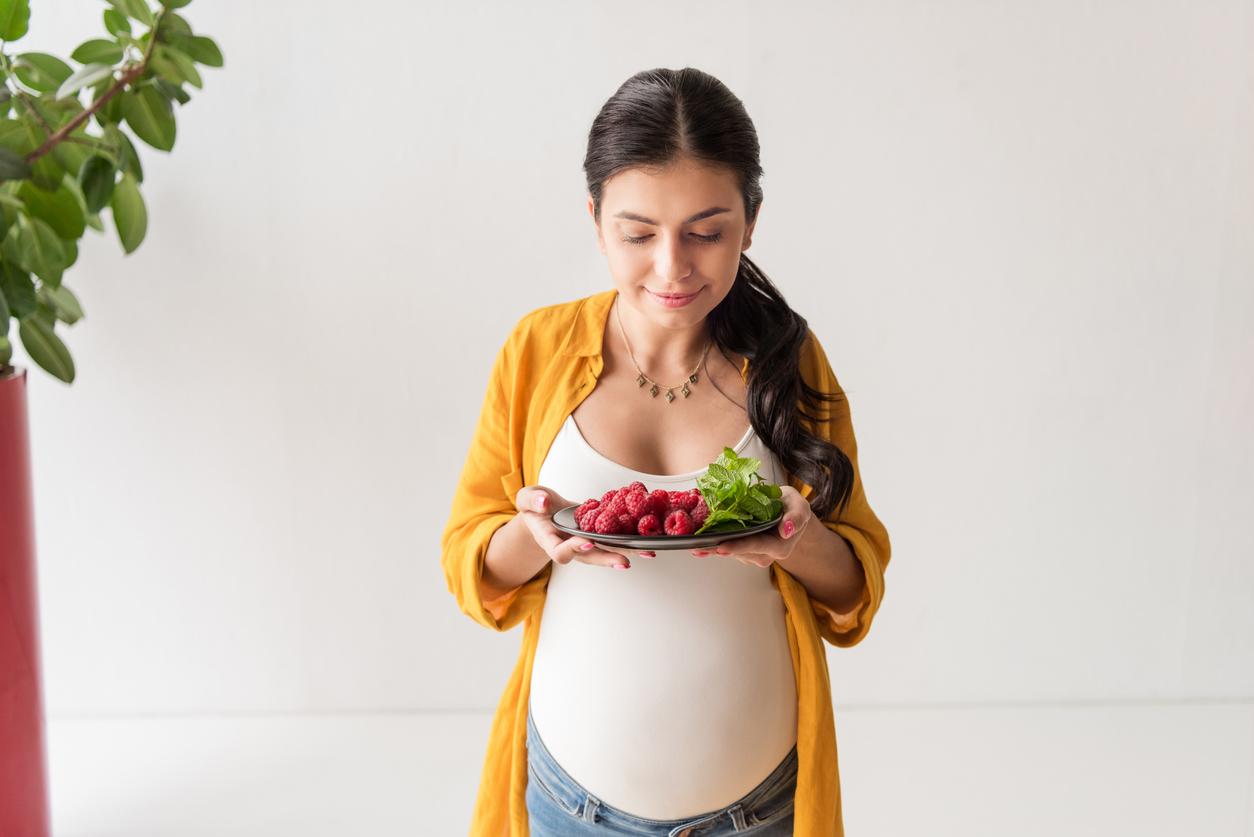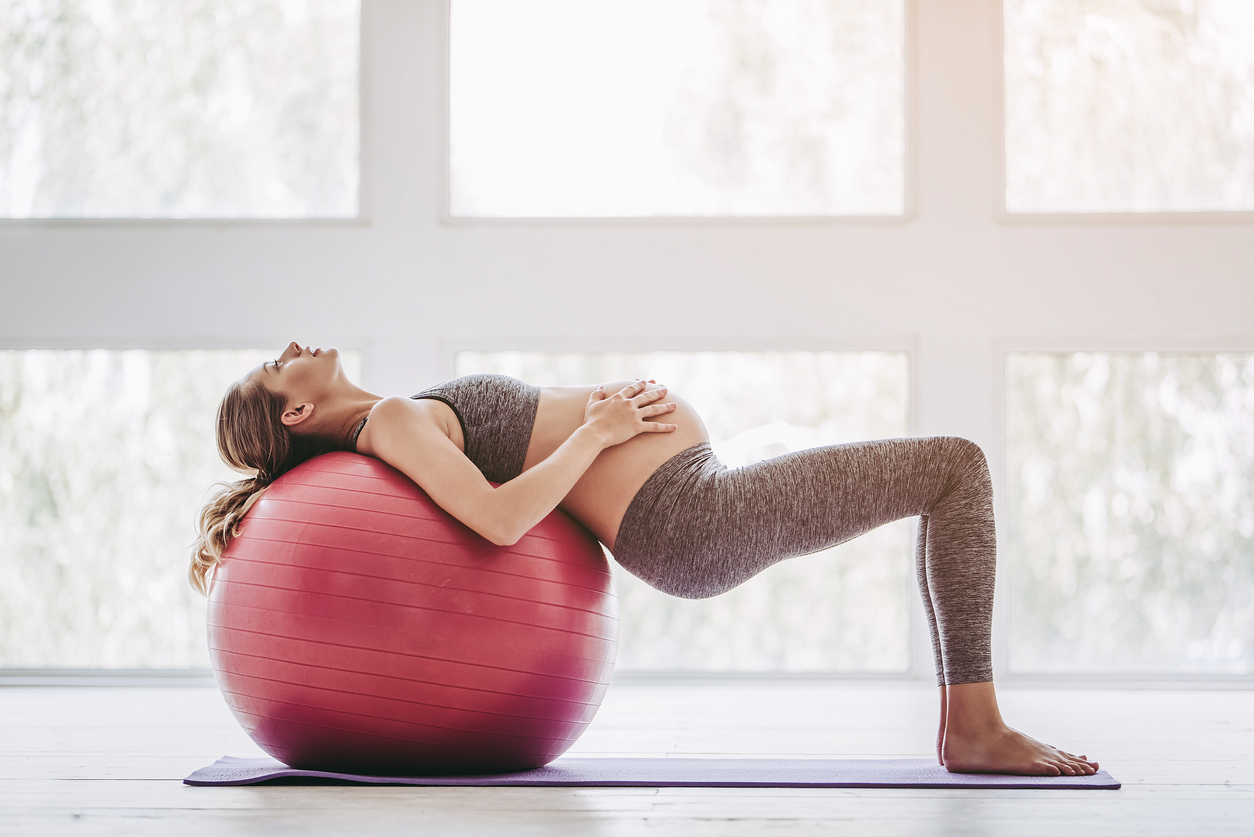Fertility tips for the Christmas season from gynaecologist and fertility expert Dr Larisa Corda plus Christmas recipes with fertility boosting ingredients
We all love Christmas and its associations of homeliness and togetherness, as well as the traditions of spending time with our loves ones and opening gifts. But did you know that Christmas is also the most popular time of year to conceive?
Several social, behavioural and scientific reasons could be behind this, all working in tandem to mean that the top ten birthdays of the year fall within September, meaning conception tends to occur in the lead up to Christmas and New Year, with the most popular time actually being Christmas Eve.
Scientifically, some studies also suggest that sperm may function better under the colder conditions and the woman’s uterus may be more receptive to receiving a growing embryo, which could provide an explanation as to why we see higher live birth rates with conceptions that occur around December time, compared to other months of the year.
I’m super-excited to share my top recipes for Christmas (below), that don’t compromise on taste, are simple and mean you don’t have to feel as if you’re depriving yourself – plus, the ingredients specifically contain fertile boosting properties.
In addition, I’m also sharing my tips for what to do around Christmas to try and give yourself the best possible chance of getting pregnant. Happy festive conceiving.
#1 Eat organically and seasonally
For many of us, the winter months can mean we crave carbohydrates and calorie-rich foods that can leave us feeling heavy, bloated and drained.
Instead, focus on eating organically and seasonally as this way you’ll know the produce is far less likely to have been influenced by hormones, pesticides, added preservatives, chemicals and additives that are rich in sugar.
Try and eat food in its cleanest most nutritious state possible, which means buying organic where you can and not over-processing or over-cooking the ingredients, and having a predominantly plant based diet of seasonal and colourful fruit and vegetables (remember, the darker the skin, the better the antioxidant value).
But this doesn’t mean depriving or starving yourself. You can take the recipes we all crave during winter, such as cottage pie and chocolate cake, but create healthier versions that taste just as good. Check out the Christmas recipes I share in this feature below.
#2 If you still smoke, stop
You absolutely need to stop smoking as this can cause damage the lining of the womb, the eggs and sperm, but also adversely affect the health of your child, not to mention cause all sorts of complications in your pregnancy.
Minimise alcohol or ideally avoid it altogether, though having said that, a glass or two of wine is unlikely to cause any harm over the festive season. However, if you’re looking for a great alternative to the classic mulled wine, try out my hangover cure that tastes just as delicious but without the alcohol (see below).
Cigarette smoke and alcohol can affect your hormone health, but also lead to developmental problems in the baby. They can also lower libido and cause damage to sperm. The liver is the main organ in the body responsible for processing toxins. If the liver is preoccupied or overburdened with processing alcohol or cigarette toxins, then it can’t do one of its other major jobs which is to clean up any substances or hormones made in the body that need to be deactivated, otherwise they themselves start to have harmful side effects on your fertility. It can also lead to excess oestrogen in the body and lowered levels of progesterone, the combination of which is not conducive to fertility.
#3 Deal with stress (but not with caffeine)
Stress reduction and keeping caffeine (which is a stress activator) to a minimum or avoiding it altogether is really important.
This time of year can often lead to a lot of stress for people, with extended families coming together and deadlines to meet at work before the year is done, not to mention the financial strain of buying gifts and providing at Christmas.
Though there is no direct association between stress and impaired fertility there is a wealth of literature showing too much stress activates the sympathetic or fight or flight response in the nervous system, leading to raised levels of the stress hormone cortisol and a permanent state of high alert.
This can then start to create an imbalance in your fertility hormones which can affect the organs in your body, leading to high blood pressure, problems with sleep and lowered libido.
High stress levels can also lead us to make unhealthy lifestyle choices to help us cope with it, such as eating too much sugar for comfort, drinking alcohol, or smoking.
Meditation, yoga, mindfulness, being outdoors in nature, having a bath, or spending time with close friends can all help, all of which are great things to do in winter.
#4 Take a good multi vitamin
If you have been on a long term contraceptive in particular the oral contraceptive pill or copper coil, be aware that they may cause deficiencies in certain vitamins and minerals that your body requires for optimum fertility, which is even more reason to eat nutritiously and take a good multi vitamin supplement.
In addition, the oral contraceptive pill can cause imbalances in a range of different hormones, that can take some time to regulate and return to their optimum state.
If you are looking towards pregnancy soon, try to consider alternative more natural means of contraception in the meantime and discuss with your doctor, such as natural cycle monitoring, which will also encourage you to understand your own body better and its pattern of behaviour.
Devices such as MyLotus Monitor, can be useful if you’re looking to learn about your peak fertility window and pattern of ovulation, in particular if you’re getting ready to conceive.
#4 Have sex often
Have sex often and throughout your cycle – I often have to remind couple about this. Having an excuse to get warm and cosy under the duvet on those cold, dark winter nights is one of the great benefits of the winter season.
Yes, the fertile window is important in terms of optimising chances of fertilisation and when the egg is exposed to the sperm, but the trouble is that people can become too stressed and focused on just this and sex can become a militaristic operation rather than a pleasure.
In fact, recent studies are suggesting that the conventional advice of abstaining for a few days in between is perhaps overcautious – actually sperm performance may improve with regular even daily intercourse, so that no matter when ovulation occurs, there will be sperm available to fertilise the egg.
So be spontaneous and remember to enjoy sex – orgasms may be helpful in aiding fertilisation too.
#5 Try extra supplements
Although you need good multivitamin supplement a few months before you start to try but remember that this is not an alternative to a good diet, the two must go hand in hand.
For men, a supplement rich in antioxidants like vitamin C, E, selenium, zinc and garlic can support healthy sperm.
Women should look towards a vitamin supplement that delivers the required dose of folic acid, iodine and vitamin D and a range of other vitamins and minerals required for conception and a healthy pregnancy.
Omega 3 is also important for both men and women as it influences the development of the baby’s brain and IQ.
#6 Lower your toxic load
The average woman carries over 120 toxins each day, whether it comes from the products she uses on herself, to the air she inhales.
Be mindful of the toxic elements influencing our environment. From the water we drink, to the toxins found in cleaning products, to the make up we put on our skin, to the plastic we use to cover our food in, they all contribute to our toxic load; the total amount of chemicals are bodies are exposed to.
Whether we absorb the toxins we’re exposed to via the gut or the skin, or in some cases inhale around the house, the combined surface area of these organs is massive, and whatever is absorbed can get into our blood stream and end up being harmful to the hormones that control fertility, as well as the eggs and sperm.
There are so many pollutants that we cannot avoid being exposed to when we step outside, but we need to be addressing the environment where we can, include that inside our homes, and what we put into and on to our bodies.
Some recent studies have also shown toxins could influence sperm DNA that can be passed on to offspring and lead to obesity and other health issues in the child.
#7 Seek loving rituals
This is nature’s natural nesting season and a time to seek comfort not just in our relationships, but also in our food, our drinks, and our rituals.
Make having a mug of tea or a warming drink, like the hangover cure, an occasion to look forward to, with your feet up in front of a cosy log fire, or tucked up in bed before you go to sleep.
Herbal teas are rich in polyphenols that your gut bacteria love and green tea has an amino acid called L-theanine that can help to reduce stress and anxiety.
Also, make bath time a ritual before bed time using natural aromatherapy oils and Himalayan or magnesium salts, that when added on a regular basis, can help your body to detox.
In addition, be mindful of hard water that epidemiological studies are showing may impact a range of health conditions, including reproductive and cardiovascular health.
Investing in an effective water softener would be wise, to help with this, as well as limescale build up.
Also consider investing in some colour therapy to help lift your mood that can often be affected by shorter daytime hours. This could be anything from buying warm coloured mugs to drink from, to cosy throws and glowing lamps, that introduce more light into a living space to help lift the atmosphere.
6 Christmas recipes with fertility enhancing ingredients
Dr Laria Corda has these amazing recipes that not only taste fantastic but also boost fertility. She’s worked with Middle Piccadilly, a wellness retreat in Dorset for these wonderful recipes. Check them out below for healthy Christmas food inspiration.
Conceiving cottage pie
Ingredients:
- 1 large onion, finely chopped
- 2 cloves of garlic, finely chopped
- 2 large carrots, cut into 10mm cubes
- 1 celery stalk, finely chopped,
- 130g red lentils,
- 400g tin of chopped tomatoes,
- 300ml vegetable stock
- 50ml red wine (optional)
- 1 tbsp of fresh thyme, finely chopped
- 2 bay leaves.
Method:
1. Pre-heat the oven to 200c
2. Saute the onions and garlic until soft in 3 tbsp of olive oil, add celery and thyme. Cook for another few minutes, stirring all the time.
3. Add the carrots and continue to cook for another 3 minutes.
4. Pour in the wine (optional) and mix thoroughly before adding the lentils, tinned tomatoes, stock and bay leaves.
5. Allow to simmer until the carrots are soft and most of the liquid is cooked off. Season.
6. Transfer your mixture into an oven proof dish.
7. Boil up 3 large peeled potatoes for the mash topping. Once cooked, mash ready to spread over the mixture. Sweet Potato is a good variation.
Sprinkle grated cheese on top (optional).
8. Spread on the top of your mixture and bake in the oven for 30 minutes or until the cheese is melted.
Here’s the video tutorial for you:
Chestnut En Croute
Ingredients:
- 1 large onion, finely chopped
- 1 cloves of garlic, finely chopped,
- 1 celery stalk, finely chopped
- 140g mushrooms, finely sliced
- 200g cooked whole chestnuts
- 320g Puff Pastry
- 250g mixed nuts
- 1 tbsp dried thyme
- 1 tbsp tomato puree
- 1 tbsp brandy (optional)
- pepper and salt
Method:
1. Pre-heat the oven to 200c
2. Finely grind mixed nuts and chestnuts in a coffee grinder or similar
3. Saute the onions and garlic in 3 tbsp of olive oil, add celery, mushrooms and herbs. Cook until soft.
4. Stir in the tomato puree, brandy and seasoning.
5. Once the mixture is cooked, remove from the heat and leave to cool.
6. Place the ground nuts/chestnuts in a food mixer along with the onion mixture and process until thoroughly mixed together. If the mixture isn’t
moist enough you can add a whisked egg
7. Roll out the puff pastry to make 2 rectangles 15cm x 25cm each.
8. Place the mixture onto one piece of the pastry,shape into a loaf shape about 2cm in from the edge of the pastry. Brush this edge with water
and lay the other piece on top pressing down all round. Trim to neaten the edges.
9. Brush with egg and pierce the top with a fork to allow steam to escape and place in pre-heated oven for 30 minutes.
Here’s the video tutorial:
Chocolate and Chestnut cake
Ingredients:
- 120g 100% dark chocolate
- 3 eggs
- pinch of salt
- 500g sweet chestnut cream
- 120g butter
- 8″ (22cm) round cake tin
Method:
1. Pre-heat the oven to 200c
2. Butter the cake tin and line with parchment paper.
3. Put the chocolate and butter into a heatproof bowl, place over a pan of just simmering water and heat until melted. Remove from the heat,
stir to combine and let cool.
4. Whisk the eggs together.
5. When the mixture has reached room temperature, stir in the eggs and chestnut cream. Add a pinch of salt.
6. Pour the mixture into your cake tin and bake for 35 minutes or until set.
7. The centre of the cake will remain soft.
8. Let the cake cool before removing it from the pan.
Here’s the video tutorial:
Raw berry jam
Ingredients:
- 140g blueberries
- 100g cranberries
- 125ml Port
- 1 tbsp vanilla paste
- 160g raspberries
- 400ml agave syrup
- Zest of 3 oranges
- 1/4 tsp himalyan salt
Method:
1. Pre-heat the oven to 70c fan assisted
2. Place all ingredients in a bowl and mix well together.
3. Place on a tray lined with parchment paper and then cover with another piece of parchment paper.
4. Place in the oven (or dehyrator at 165f if you have one).
5. After 3 hours remove the top parchment lid and return to oven/dehyradtor for another 3 hours or until the mixture is a syrupy consistency.
6. Best stored in the fridge in a kilner jar.
Here’s the YouTube tutorial:
Chocolate and marmite gravy
Ingredients:
- 50g butter
- 1 dsp of yeast extract
- Seasoning
- 2 tbsp plain flour
- 1 tbsp tamari (soy sauce)
- hot water
Method:
1. Melt butter in a pan, add the plain flour to make a thick double cream consistency.
2. Pour hot water onto the roux, whisking vigourly until you achieve a single cream consistency.
3. Whisk in the tamari and continue to stir.
4. If the sauce starts to get too thick add more water to return it to a single cream consistency.
5. Whisk in the yeast ecxtract and stir until fully absorbed.
6. Season with pepper and taste to determine whether you need to add salt.
Hangover cure
Ingredients:
- 240ml water
- 240ml water
- 170g sugar
- 5cm piece of fresh ginger, peeled and sliced
- 1 tsp cinnamon
- 2 tbsp vanilla extract
- 500ml apple juice
- 3 pears, chopped into chunks
- 1 lemon, halved and sliced
- 240ml cranberry juice
Method:
1. Place all ingredients in a saucepan except for the cranberry juice and the vanilla.
2. Bring to the boiol and then simmer for 15 minutes.
3. Strain the liquid in a sieve, return to the pan and add the cranberry and vanilla.
4. Simmer for another 5 minutes and serve.

Her new website drlarisacorda.com is launching in January and will focus on healthy, clean and natural lifestyle approaches to boost fertility and pregnancy.
You can get in contact with her by following her on Twitter at @DrLarisaTV, and on Instagram at @drlarisacorda
More Healthista Content
6 characteristics of highly sensitive people
Trying to conceive? This new at-home fertility test is as reliable as lab testing
7 healthy Christmas recipes to try this year
10 supplements to help fertility
Like this article? Sign up to our newsletter to get more articles like this delivered straight to your inbox.
























































